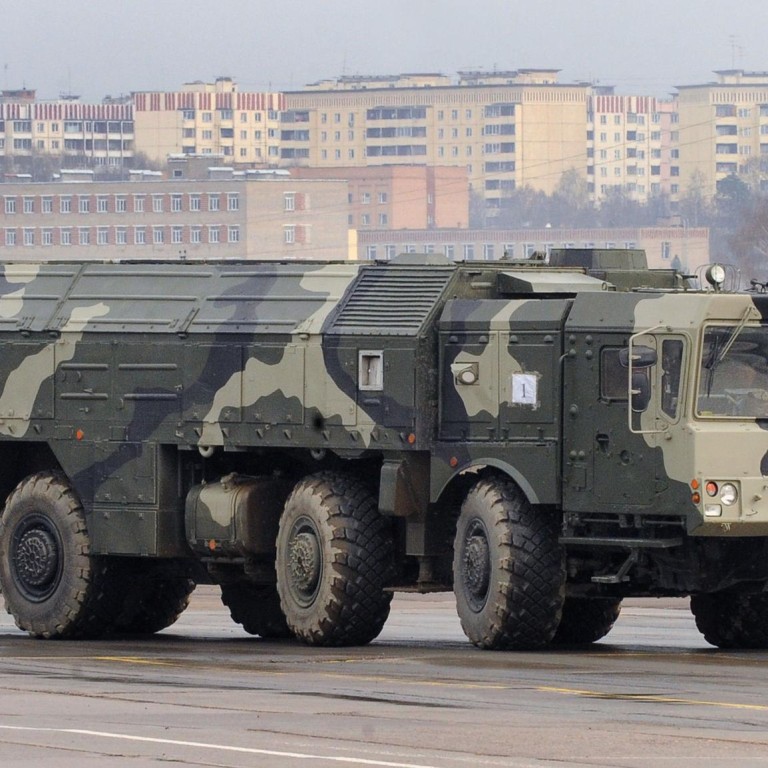
Russian deployment of nuclear-capable missiles worries US and EU
Poland and Baltic states express concern at the placement of nuclear-capable weaponry
Washington has joined Russia's neighbours in voicing alarm after Moscow revealed it had moved nuclear-capable Iskander missiles closer to European Union borders in response to the US-led deployment of a disputed air defence shield.
The advanced version of the Russian missile has a range of 500 kilometres and could be used to destroy ground-based radar and interceptors of the new Nato shield.
Moscow's announcement on Monday prompted concern from the United States as well as Poland and the three Baltic states, Estonia, Lithuania and Latvia.
"We have urged Russia to take no steps to destabilise the region," US State Department deputy spokeswoman Marie Harf said, adding the US had also passed on to Moscow its neighbours' concerns.
Poland's foreign ministry called the planned missile movement "disturbing".
"This is a matter for Nato and we can expect possible consultations and action … at the Nato and EU level," the ministry said.
Latvia's defence minister, Artis Pabriks, said that "several Baltic cities" were threatened by the move.
"It is clear that it is alarming news, as it is one of the arguments changing balance of powers in our region," he said, according to the Baltic News Service.
Germany's newspaper first reported over the weekend that Russia had deployed about 10 Iskander systems in its Kaliningrad exclave, which is wedged between Poland and Lithuania, at some point in the past year.
A Russian defence official said in response to the report that several Iskander batteries had been stationed in a region that included the exclave and also borders the Baltic nations that were once in the old Soviet Union.
"Iskander operational-tactical missile systems have indeed been commissioned by the western military district's missile and artillery forces," Russian news agencies quoted defence ministry spokesman Igor Konashenkov as saying.
He added that the deployment "does not violate any international treaties or agreements" and should therefore not be subject to protests from the West.
The Kremlin warned in 2011 that it could station the missiles along the EU's eastern frontier in response to Nato's missile defence programme.
Both the US and the Western military alliance have argued that the shield was not aimed at Russia but designed to protect the West from potential threats from "rogue states". But Moscow fears the system, whose components include missile-positioning satellites, may one day be turned into an offensive weapon that targets Russian territory.
